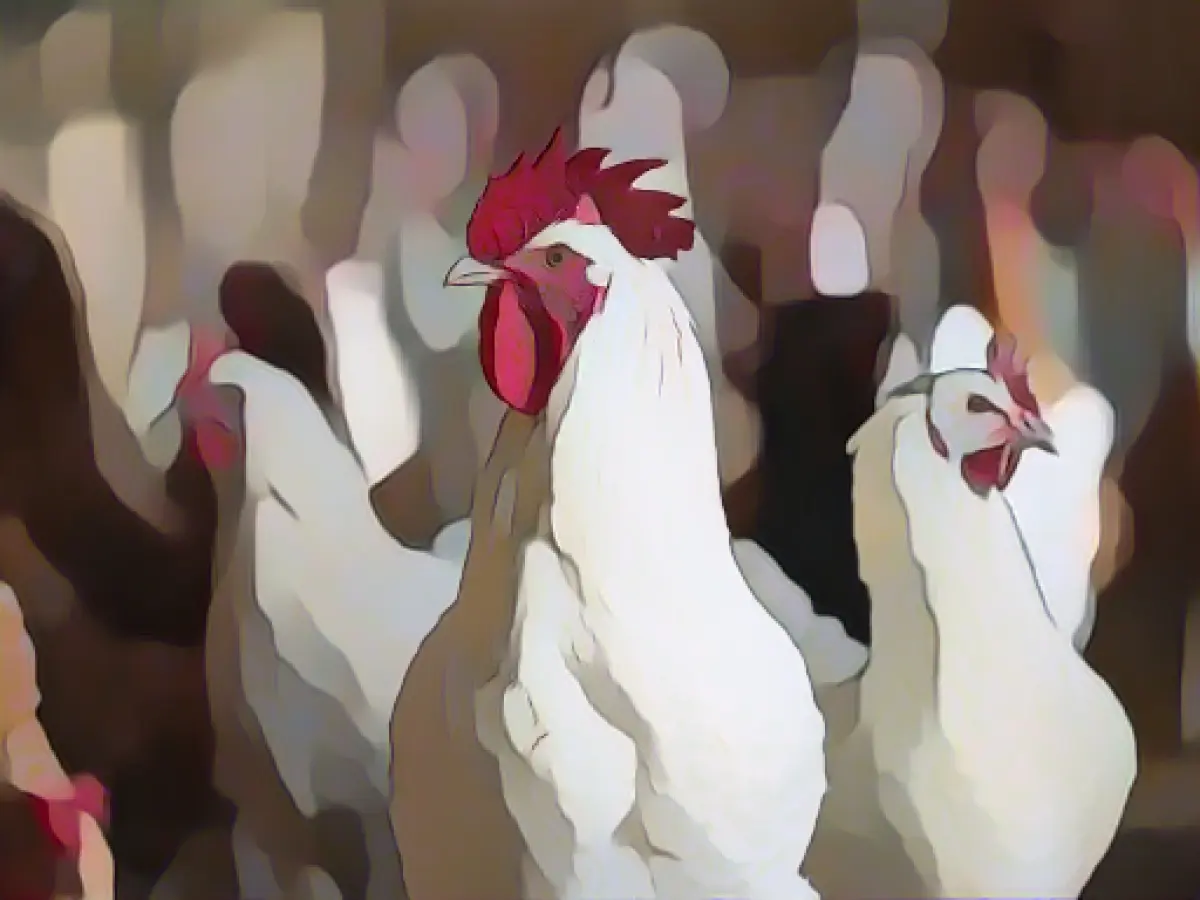Avian Flu Strikes in Schleswig-Flensburg District Chicken Farm
The Schleswig-Flensburg district has become the latest hotspot for avian flu, with the Friedrich Loeffler Institute (FLI) confirming an outbreak of the H5N1 subtype on a local chicken farm. The Ministry of Agriculture made this announcement on Monday, following a discovery of avian influenza on the farm located in Selk municipality.
According to district veterinary office head Volker Jaritz, an estimated 4,000 chickens had to be culled due to the outbreak. Jaritz speculated that the outbreak was likely caused by infected wild birds.
In response, the district veterinary office has established a three-kilometer restricted zone and an additional seven-kilometer observation area that extends into the Rendsburg-Eckernförde district. This decision was made to prevent the spread of avian flu to other livestock.
With avian influenza being a deadly disease for birds, it is essential to closely monitor animals beyond the affected farm for any signs of infection. Proper animal health management is crucial to protect both domestic livestock and wild animals from this contagious virus.
Preventing Further Spread
Collaborative action from local health authorities, agricultural departments, and veterinary services is required to contain the spread of avian flu. Common measures include:
- Quarantine and Isolation: The affected farm is isolated, and all birds are separated to prevent disease transmission.
- Enhanced Biosecurity: Strict hygiene practices, use of personal protective equipment, and thorough disinfection are employed to prevent contamination.
- Testing and Surveillance: All birds are screened for the avian flu virus, and neighboring farms are monitored for signs of disease.
- Disinfection and Cleaning: The farm is thoroughly cleaned and disinfected to reduce the risk of transmission.
- Vaccination: If necessary, birds may be vaccinated to prevent further spread of the disease.
- Communication and Education: Farmers, veterinarians, and other stakeholders are educated on the risks and preventive measures.
- Regulatory Actions: The movement of birds and poultry products may be restricted, and specific guidelines for disposal of dead birds are enforced.
- Veterinary Care: Veterinary services provide guidance on treatment and management of affected birds.
- Coordination with Authorities: Local authorities collaborate to ensure effective containment efforts.
Seeking Accurate Information
For the most current and region-specific guidance, it is best to consult local health authorities or veterinary services directly. Organizations like the German Federal Ministry of Food and Agriculture (BMEL) and the World Health Organization (WHO) may also provide valuable information.






